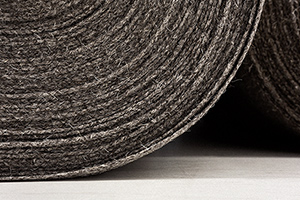On the road in Donegal
Friday, 25th October 2013
Big, bracing, bold sort of place is County Donegal in north-west Ireland. The sort of place which, if you’re not careful, if you don’t stand up to it, can overawe a man. Pictures, of course, are much better in this instance than words — so here, then, is the landscape of County Donegal, in which is tucked a small bustling cluster of great makers.

Rarely anything but family-run, these makers. Among them are the father-son weavers — who last month finished off the remarkably good cloth from which the peacoat and three-button blazer are cut — and the father-daughter cap-makers, ten or so miles down the road, who turn wares locally woven into the likes of the coach caps. Keeping business in the family, it turns out, works best when the lines dividing labour are firmly drawn.
Those two makers are just the start. In the hills of Donegal, among the gorse and the grassland, and at the ends of the narrowing roads, are scattered dozens of mutually dependent makers. Spinners, knitters, and scarf, sock, and blanket-makers. Firms joined up one to the next: a very local supply chain through which runs the common thread of Donegal yarn. They are often bound not only by their work, these makers, but by families, too — with workforces sharing siblings, spouses, and cousins, and all of them practising livelihoods first thought up by great-great-great-great-great-grandfathers.
Reports from a handful of these makers — including the father-and-son tweed-weaving duo, the nearby cap-maker, and the aeons-old spinning factory responsible for the unmistakably nepped and burred Donegal yarn itself — will pop up here before too long.





